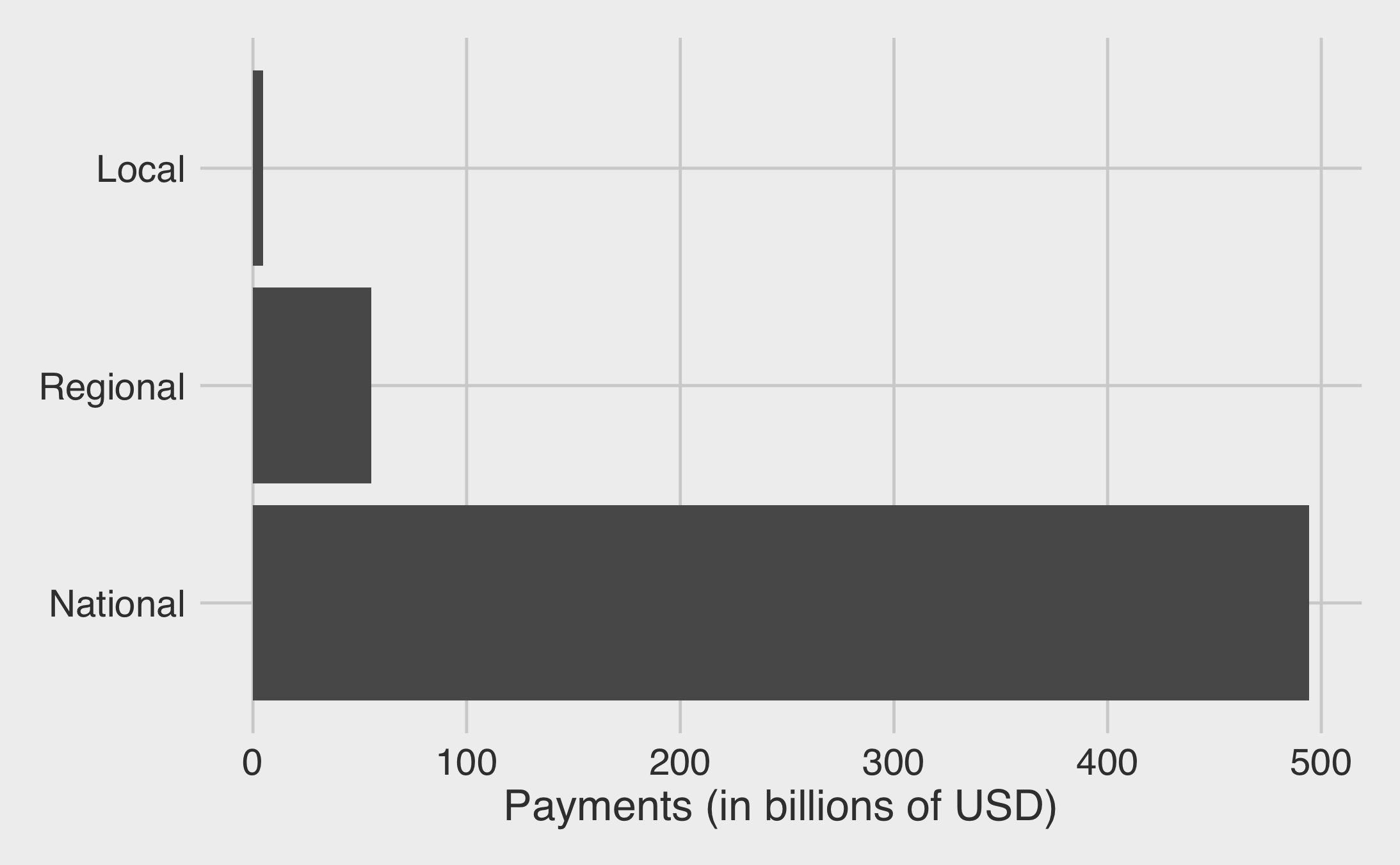
Presenting the New and Improved ResourceProjects.org
The latest version of ResourceProjects.org is now live, with several new features and data.
ResourceProjects.org is the most complete and clean repository of project-level payments made by extractive sector companies around the world. The website contains information on USD 542 billion in payments made by 751 extractive sector companies that have reported under mandatory disclosure laws passed in the European Union, Norway and Canada since 2014. In addition to this payment data, you can now access profile pages for companies and countries, subscribe to customized updates, and submit new sources to us for scraping.
 Payments disclosed are increasing every year
Payments disclosed are increasing every year
Clean, complete and easy. The greatest asset of the website continues to be the data. Since 2016, we have scraped, cleaned and compiled over 1,535 documents released in 21 different reporting jurisdictions with varying formats, reporting templates and languages. You can access the entire dataset and/or filter a specific cut of the data using the payment tables on the website.
Company profiles. Every company that has disclosed under mandatory disclosure laws now has a profile page. The profiles summarize payment data for each company and provide secondary data on their operations. You can access these profiles through the company profile landing page or by clicking on a company name anywhere on the website.
 Screenshot of tables showing the top projects and government agencies (by payment) for Royal Dutch Shell PLC
Screenshot of tables showing the top projects and government agencies (by payment) for Royal Dutch Shell PLC
 Screenshot of the landing page map showing payments received by countries
Screenshot of the landing page map showing payments received by countries
Country profiles. We have provided profiles for countries since mid-2017. In 2019, we have made several performance improvements and made them easier to access. Click on a country you are interested in on the landing page map to access its profile.
Customized updates to track payments. If you are interested in following a particular country, company or reporting jurisdiction you can do so by signing up on the website to receive customized updates based on your interests.
Submit new disclosure sources. Have we missed a mandatory disclosure report? Now you can tell us about it here. We will scrape and upload data from it so that you can see it on the website. You can access the submit sources button by going to the table of mandatory disclosure sources here.
 Screenshot of a country profile map of projects in Mexico, showing the location and type of project
Screenshot of a country profile map of projects in Mexico, showing the location and type of project
 Project payments in Mexico: Why are a high proportion of payments being disclosed through unidentifiable project names?
Project payments in Mexico: Why are a high proportion of payments being disclosed through unidentifiable project names?
 Payments to government agencies: the majority of payments are made to national agencies
Payments to government agencies: the majority of payments are made to national agencies
Secondary data. As mentioned earlier, in addition to payment (primary) data, we collect additional (secondary) data on projects, government agencies and companies. You can use this data for more detailed analysis of the payment data and check the quality of disclosures.
In addition to the project and government agency types, which can be used as a filter for the data on the website, we collect several other variables (commodity, location, etc.). We are still in the process of finalizing this data and look forward to including it when we launch the next iteration of the website. In the meantime, please email us if you are interested in using this data for your work.
Persistent provenance. We noticed that over time some (about 15 percent every year) URLs or APIs that are used to host mandatory disclosure reports either disappear or get replaced. In order to maintain full traceability between raw and final versions of the data, we now provide access to a backup for every report. This way you will always be able to read the original report, irrespective of whether it is available online at source. You can access both version of sources through the table of mandatory disclosure sources here.
Please provide feedback. We are excited for you to try out these new features. The website continues to be in active development and we would love to have your inputs on any additional features you would like or any bugs you notice. Please provide feedback here.
Finally, thanks to our developers Young Innovations for their work on this project for an excellent job at translating our vision into an easy to use and intuitive website.
Hari Subhash is a data scientist with the Natural Resource Governance Institute.
